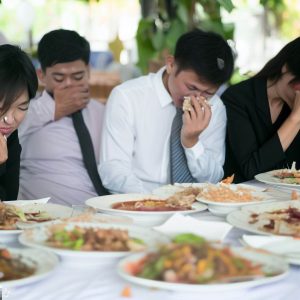What is food poisoning?
Food poisoning is a common illness caused by eating food that has been contaminated with harmful germs. The symptoms of food poisoning usually include nausea, vomiting, diarrhea, stomach cramps, and a fever. In most cases, food poisoning is not serious and goes away on its own within a few days. However, some people, especially young children, the elderly, and people with weakened immune systems, can develop serious complications from food poisoning.
Symptoms of food poisoning
The symptoms of food poisoning usually start within 1-3 days after eating contaminated food. The most common symptoms are:
Nausea and vomiting
Diarrhea
Stomach cramps
Fever
Headache
Fatigue
Muscle aches
Chills
In some cases, food poisoning can lead to more serious complications, such as dehydration, electrolyte imbalance, and sepsis.
Treatment for food poisoning
Most cases of food poisoning do not require medical treatment and will go away on their own within a few days. However, there are some things you can do to help relieve your symptoms:
Get plenty of rest.
Drink plenty of fluids, such as water, clear broth, or sports drinks.
Avoid caffeine and alcohol.
Eat bland foods, such as toast, crackers, and bananas.
If your symptoms are severe or do not improve after a few days, see your doctor.
Prevention of food poisoning
The best way to prevent food poisoning is to practice good food safety habits.
These include:
Cooking food thoroughly.
Refrigerating food promptly.
Thawing food properly.
Avoiding cross-contamination between raw and cooked foods.
Washing your hands thoroughly before and after handling food.
Cleaning and sanitizing surfaces and utensils that have come into contact with raw food.
By following these simple tips, you can help protect yourself and your family from food poisoning.
Claim Time
If you have suffered from food poisoning, you may be entitled to claim compensation. The amount of compensation you can claim will depend on the severity of your illness and the impact it has had on your life.
To make a claim for food poisoning, you will need to contact a specialist food poisoning solicitor. A solicitor will be able to assess your case and advise you on whether you have a good chance of success. If you do have a good case, your solicitor will be able to help you to prepare your claim and represent you in court.
Making a claim for food poisoning can be a complex and lengthy process, but it can be worth it if you are successful. Compensation can help you to cover the costs of your treatment, lost earnings, and pain and suffering. It can also help you to move on with your life.
Conclusion
Food poisoning is a common illness that can be caused by eating contaminated food. The symptoms of food poisoning usually start within 1-3 days after eating contaminated food and can include nausea, vomiting, diarrhea, stomach cramps, and a fever. In most cases, food poisoning is not serious and goes away on its own within a few days. However, some people, especially young children, the elderly, and people with weakened immune systems, can develop serious complications from food poisoning.
Here are some tips to help prevent food poisoning:
Cooking food thoroughly
Cook food to the proper temperature to kill harmful germs. The internal temperature of meat, poultry, and fish should reach the following temperatures:
- Beef: 145°F (63°C)
- Chicken: 165°F (74°C)
- Pork: 160°F (71°C)
- Fish: 145°F (63°C)
Refrigerating food promptly
Refrigerate food within two hours of cooking or within one hour if the temperature outside is above 90°F (32°C).
Thawing food properly
Thaw food in the refrigerator or in the microwave. Do not thaw food at room temperature.
Avoiding cross-contamination between raw and cooked foods
Use separate cutting boards and utensils for raw and cooked foods. Wash cutting boards and utensils thoroughly with soap and water after each use.
Washing your hands thoroughly before and after handling food
Wash your hands with soap and water for at least 20 seconds before and after handling food.
Cleaning and sanitizing surfaces and utensils that have come into contact with raw food
Clean and sanitize all surfaces and utensils that have come into contact with raw food. Use a mild bleach solution or a commercial sanitizer.
By following these simple tips, you can help protect yourself and your family from food poisoning.



